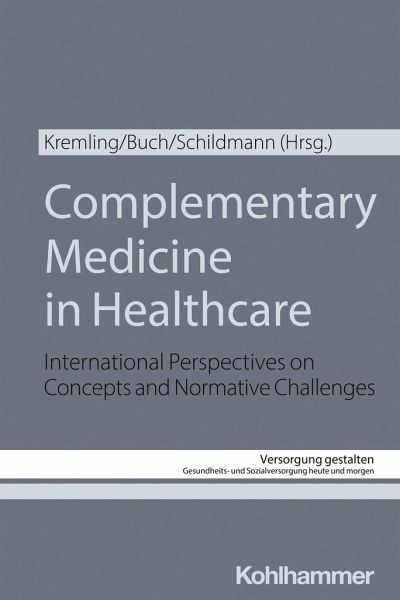
Complementary Medicine in Healthcare
International Perspectives on Concepts and Normative Challenges
Herausgegeben: Kremling, Alexander; Buch, Charlotte; Schildmann, Jan; Nass, Elmar; Zerth, Jürgen;Mitarbeit: Kremling, Alexander; Buch, Charlotte; Baschin, Marion; Bogaert, Brenda; Büntzel, Judith; Busch, A
Versandkostenfrei!
Sofort lieferbar
49,00 €
inkl. MwSt.

PAYBACK Punkte
0 °P sammeln!
Complementary medicine is a challenge for modern medical care, which is supposed to be based on science and evidence, but also forms part of a pluralistic society that attaches great importance to patient autonomy. There are currently several, partly contradictory trends. On the one hand, complementary medicine is becoming increasingly academicized, for example, by the establishment of professorships for "complementary medicine". On the other hand, public and scientific pressure on legislators has increased to exclude measures that are often considered to be part of complementary medicine. One...
Complementary medicine is a challenge for modern medical care, which is supposed to be based on science and evidence, but also forms part of a pluralistic society that attaches great importance to patient autonomy. There are currently several, partly contradictory trends. On the one hand, complementary medicine is becoming increasingly academicized, for example, by the establishment of professorships for "complementary medicine". On the other hand, public and scientific pressure on legislators has increased to exclude measures that are often considered to be part of complementary medicine. One example is the exclusion of homeopathy from reimbursement by publicly funded health insurance companies.This volume encompasses multidisciplinary perspectives on the meaning and function of complementary medicine, with a special emphasis on contributions from France and Germany. In addition to systematic conceptual, historical and empirical analyses, the book provides case studies and contributions on practical questions. Alexander Kremling, Charlotte Buch and Jan Schildmann are researchers at the Institute for History and Ethics of Medicine at Martin-Luther-Universität Halle-Wittenberg.












